Filter by
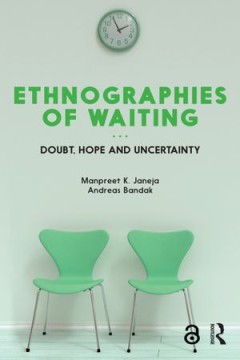
Ethnographies of Waiting Doubt, Hope and Uncertainty
We all wait – in traffic jams, passport offices, school meal queues, for better weather, an end to fighting, peace. Time spent waiting produces hope, boredom, anxiety, doubt, or uncertainty. Ethnographies of Waiting explores the social phenomenon of waiting and its centrality in human society. Using waiting as a central analytical category, the book investigates how waiting is negotiated in m…
- Edition
- -
- ISBN/ISSN
- 9781474280280
- Collation
- -
- Series Title
- -
- Call Number
- -

Work and Livelihoods History, Ethnography and Models in Times of Crisis
Winner of the Society for the Anthropology of Work book prize 2017 This volume presents a global range of ethnographic case studies to explore the ways in which - in the context of the restructuring of industrial work, the ongoing financial crisis, and the surge in unemployment and precarious employment - local and global actors engage with complex social processes and devise ideological, po…
- Edition
- -
- ISBN/ISSN
- 9781317602446
- Collation
- -
- Series Title
- -
- Call Number
- -
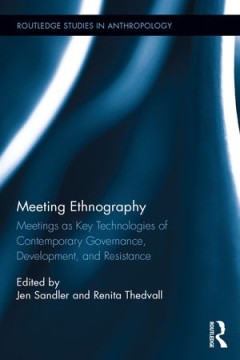
Meeting Ethnography Meetings as Key Technologies of Contemporary Governance,…
This volume asks and addresses elusive ontological, epistemological, and methodological questions about meetings. What are meetings? What sort of knowledge, identities, and power relationships are produced, performed, communicated, and legitimized through meetings? How do—and how might—ethnographers study meetings as objects, and how might they best conduct research in meetings as particula…
- Edition
- -
- ISBN/ISSN
- 1317195108
- Collation
- -
- Series Title
- -
- Call Number
- -
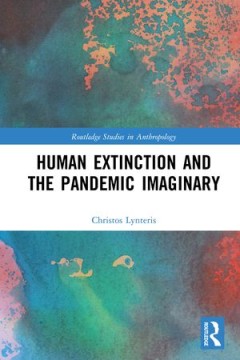
Human Extinction and the Pandemic Imaginary
This book develops an examination and critique of human extinction as a result of the ‘next pandemic’ and turns attention towards the role of pandemic catastrophe in the renegotiation of what it means to be human. Nested in debates in anthropology, philosophy, social theory and global health, the book argues that fear of and fascination with the ‘next pandemic’ stem not so much from an …
- Edition
- -
- ISBN/ISSN
- 9781000698886
- Collation
- -
- Series Title
- -
- Call Number
- -
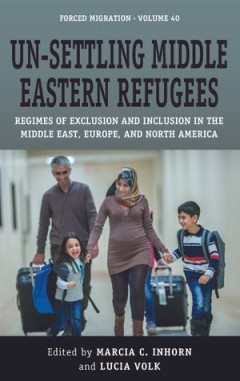
Un-settling Middle Eastern Refugees: Regimes of Exclusion and Inclusion in th…
Since the Iraq war, the Middle East has been in continuous upheaval, resulting in the displacement of millions of people. Arriving from Afghanistan, Iraq, Palestine, and Syria in other parts of the world, the refugees show remarkable resilience and creativity amidst profound adversity. Through careful ethnography, this book vividly illustrates how refugees navigate regimes of exclusion, includi…
- Edition
- -
- ISBN/ISSN
- 9781800730564
- Collation
- -
- Series Title
- -
- Call Number
- 301 UNS u
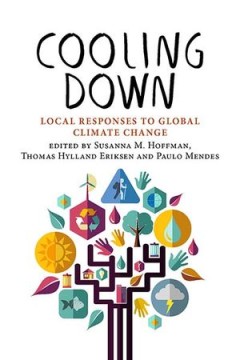
Cooling Down: Local Responses to Global Climate Change
Climate change is a slowly advancing crisis sweeping over the planet and affecting different habitats in strikingly diverse ways. While nations have signed treaties and implemented policies, most actual climate change assessments, adaptations, and countermeasures take place at the local level. People are responding by adjusting their practices, livelihoods, and cultures, protesting and migratin…
- Edition
- -
- ISBN/ISSN
- 9781800731899
- Collation
- -
- Series Title
- -
- Call Number
- 301 COO c
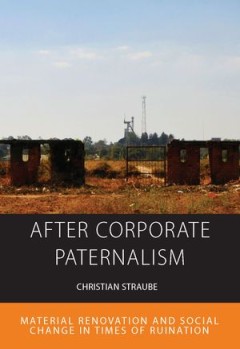
After Corporate Paternalism: Material Renovation and Social Change in the Tim…
In this ethnographic study of post-paternalist ruination and renovation, Christian Straube explores social change at the intersection of material decay and social disconnection in the former mine township Mpatamatu of Luanshya, one of the oldest mining towns on the Zambian Copperbelt. Touching on topics including industrial history, colonial town planning, social control and materiality, gender…
- Edition
- -
- ISBN/ISSN
- 9781800731332
- Collation
- -
- Series Title
- -
- Call Number
- 301 STR a
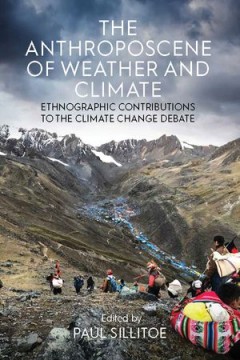
The Anthroposcene of Weather and Climate: Ethnographic Contributions to the C…
While it is widely acknowledged that climate change is among the greatest global challenges of our times, it has local implications too. This volume forefronts these local issues, giving anthropology a voice in this great debate, which is otherwise dominated by natural scientists and policy makers. It shows what an ethnographic focus can offer in furthering our understanding of the lived realit…
- Edition
- -
- ISBN/ISSN
- 9781800732780
- Collation
- -
- Series Title
- -
- Call Number
- 301 ANT a
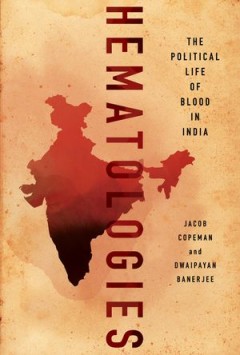
Hematologies : The Political Life of Blood in India
In this ground-breaking account of the political economy and cultural meaning of blood in contemporary India, Jacob Copeman and Dwaipayan Banerjee examine how the giving and receiving of blood has shaped social and political life. Hematologies traces how the substance congeals political ideologies, biomedical rationalities, and activist practices.Using examples from anti-colonial appeals to blo…
- Edition
- -
- ISBN/ISSN
- 1501745115, 9781501745119
- Collation
- -
- Series Title
- -
- Call Number
- -
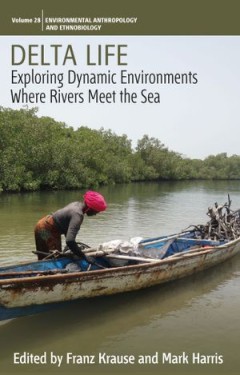
Delta Life Exploring Dynamic Environments where Rivers Meet the Sea
Proposing a series of innovative steps towards better understanding human lives at the interstices of water and land, this volume includes eight ethnographies from deltas around the world. The book presents ‘delta life’ with intimate descriptions of the predicaments, imaginations and activities of delta inhabitants. Conceptually, the collection develops ‘delta life’ as a metaphor for ap…
- Edition
- -
- ISBN/ISSN
- 9781800731240
- Collation
- -
- Series Title
- -
- Call Number
- -
 Computer Science, Information & General Works
Computer Science, Information & General Works  Philosophy & Psychology
Philosophy & Psychology  Religion
Religion  Social Sciences
Social Sciences  Language
Language  Pure Science
Pure Science  Applied Sciences
Applied Sciences  Art & Recreation
Art & Recreation  Literature
Literature  History & Geography
History & Geography